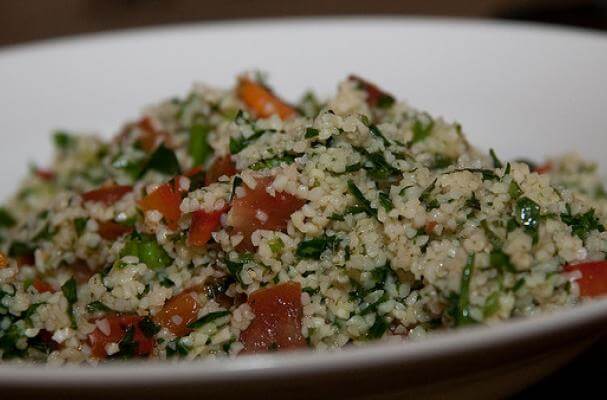Mediterranean Diet Shopping List

The Mediterranean diet is a heart-healthy way of eating that includes fish, whole grains, vegetables & fruits, nuts & seeds, and healthy fats. Research suggests that switching to the Mediterranean diet may reduce the risk of heart disease and stroke. This Mediterranean diet shopping list will help you on your way to adopting a healthier lifestyle.
Whole Grains
Grains eaten as part of the Mediterranean diet should be minimally-processed whole grains. They are an excellent source of fiber, B-complex vitamins, and minerals such as iron and magnesium. The high insoluble fiber content of whole grains is essential for a healthy digestive system and also promotes a sense of fullness. Since processing removes many of the nutrients found in grains, it is advised to consume whole grains like these:
Seafood
The Mediterranean diet recommends eating seafood at least twice a week. Salmon and other fatty fish are an excellent source of essential omega-3 fatty acids. Omega-3s are important for heart and brain health. Consuming adequate levels of omega-3 fatty acids from fish is associated with a lower risk for heart disease. Cook your fish by grilling or baking, instead of frying.
- Salmon
- Shrimp
- Halibut
- Tuna
- Tilapia
- Shellfish (oysters, clams, mussels)
Healthy Oils/Fats
The approved oils and fats for the Mediterranean diet are rich in monounsaturated fatty acids. Olive oil, a main component of the diet that is often used in cooking, is rich in oleic acid. Research shows that oleic acid may reduce LDL cholesterol levels, boost the immune system, and help stabilize blood sugar levels. These are the healthy fats you should add to your grocery list:
- Olive Oil (Extra Virgin)
- Nut Oils (i.e. walnut oil, almond oil)
- Avocados
Vegetables
Eating a colorful assortment of vegetables will ensure you get plenty of vitamins, minerals, and fiber. The Mediterranean diet is primarily plant-based and vegetables are a large part of it. When you’re in a hurry, you can incorporate frozen or freeze-dried vegetables into your cooking. They retain the same rich nutritional content as their fresh counterparts.
- Fresh Vegetables (i.e. artichokes, broccoli, carrots, cucumbers, eggplant, kale, mushrooms, onions, peppers, potatoes, spinach, zucchini, etc.)
- Frozen Vegetables
- Freeze-Dried Vegetables
Fruit
Eating fruit is a healthy way to satisfy a sweet craving on the diet. Fruit is packed with protective vitamins, fiber, minerals, and antioxidants. You can buy fresh fruit, frozen fruit, and also look for dried fruit with no added sugar. Dried fruit is a great snack because it’s easy and portable so you can bring it to work or school.
- Fresh Fruit (i.e. apples, bananas, blueberries, oranges, grapes, figs, kiwi, pears, peaches, strawberries etc.)
- Frozen Fruit
- Dried Fruit (i.e. Natural dried strawberries, blueberries, cherries, and other dried fruit with no sugar added)
- Freeze-Dried Fruit
Nuts/Seeds
Nuts and seeds are satisfying and nutritious components of the Mediterranean diet. High in protein, fiber, antioxidants, healthy fats, and minerals, nuts are a great on-the-go snack. You can also incorporate them into your recipes.
Beans
Beans are an excellent plant-based source of protein and dietary fiber. They are particularly satiating, making them a great addition to a light lunch or dinner. You can enjoy them as a side dish or incorporate them into the main meal. Here are some varieties to look for:
- Black Beans
- Kidney Beans
- Garbanzo Beans (Chickpeas)
- Lentils
- Pinto Beans
Dairy/Eggs
Although the Mediterranean diet limits the consumption of dairy products, you can still enjoy yogurt, cheese, and eggs in moderation.
- Yogurt
- Cheese
- Eggs
Herbs & Spices
For an enticing addition of flavor, Mediterranean-style cooking relies heavily on various herbs & spices. You can use fresh herbs & also stock your pantry with the dried kind. Here are some popular herbs & spices for Mediterranean dishes:
Which of these items on our Mediterranean diet shopping list are staples in your kitchen already? To get you started, here’s a great tabbouleh recipe made with sun-dried tomatoes.

One Response to “Mediterranean Diet Shopping List”
Hello,
The best blog informative information is very useful.thank you for share this blog